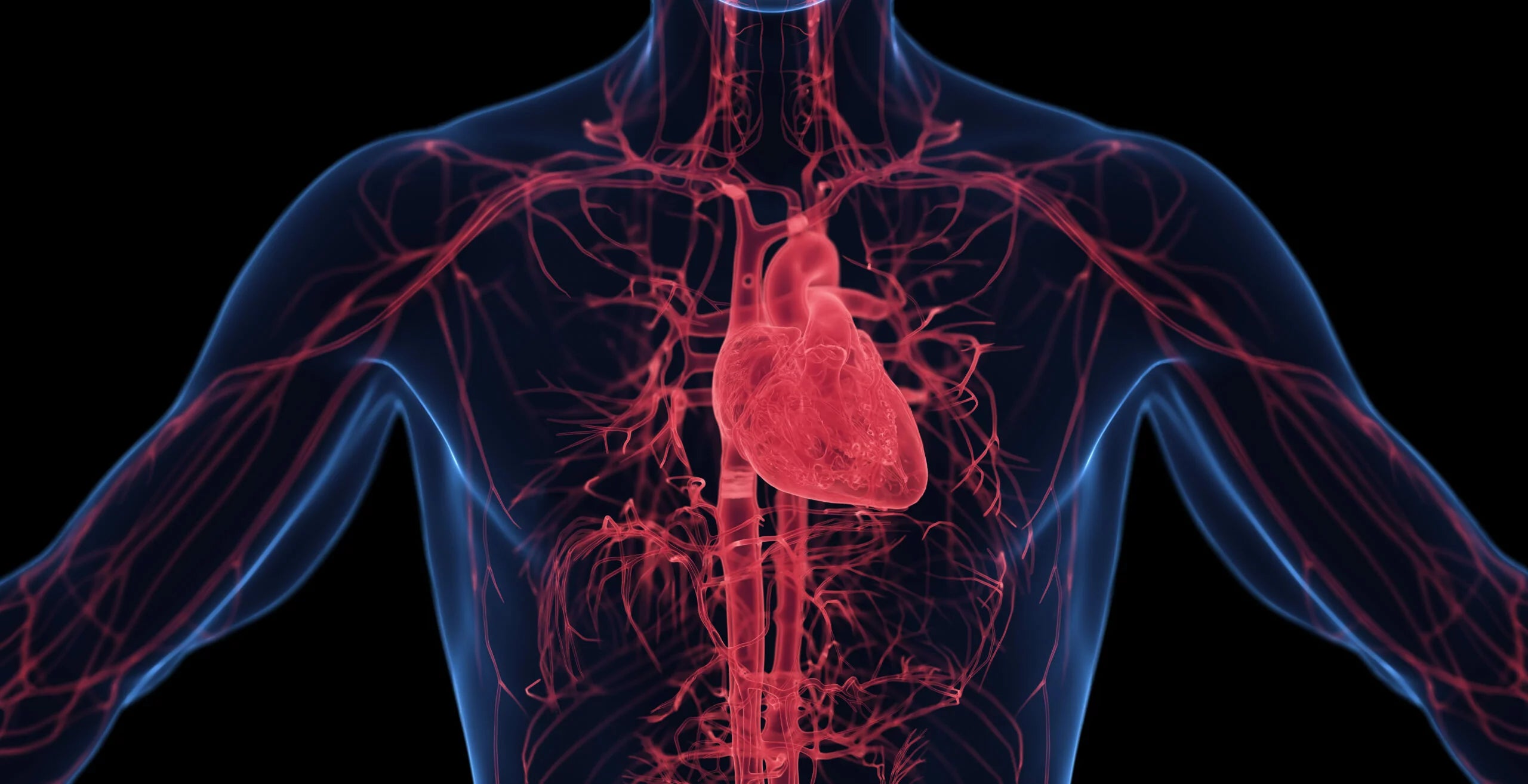
Apneea de somn și bolile cardiovasculare: Un pericol subestimat
Legătura dintre apneea de somn și hipertensiunea arterială Apneea de somn este un factor subestimat în apariția și agravarea hipertensiunii arteriale. În special, hipertensiunea rezistentă la tratament, care răspunde slab la medicamentele uzuale, este adesea...
Apneea de somn și bolile cardiovasculare: Un pericol subestimat
Legătura dintre apneea de somn și bolile cardiovasculare este adesea subestimată, deși numeroase studii demonstrează că apneea de somn netratată nu doar că afectează semnificativ calitatea vieții, dar poate avea și consecințe grave asupra sănătății. În acest articol vom analiza conexiunile, descoperirile științifice actuale și opțiunile de prevenție și tratament.

Ce este apneea de somn?
Apneea de somn este o tulburare respiratorie legată de somn, caracterizată prin opriri repetate ale respirației în timpul somnului. Cele mai frecvente forme sunt:
- Apneea obstructivă de somn (OSA): Căile respiratorii se prăbușesc sau sunt blocate, ceea ce duce adesea la sforăit zgomotos.
- Apneea centrală de somn (CSA): O tulburare a centrului de control al respirației din creier.
Apneea obstructivă de somn (OSA) este cea mai comună formă și afectează între 10-20% dintre adulții din țările occidentale, multe cazuri rămânând nediagnosticate.
Cum afectează apneea de somn sistemul cardiovascular?
Apneea de somn netratată duce la o serie de procese fiziologice care pun presiune asupra inimii și vaselor de sânge:
- Episoade repetate de lipsă de oxigen (hipoxie): Acestea duc la stres oxidativ, care afectează pereții vaselor de sânge și favorizează ateroscleroza.
- Creșterea tonusului simpatic: În timpul episoadelor de apnee, activitatea sistemului nervos simpatic crește, ceea ce duce la hipertensiune arterială și ritm cardiac accelerat.
- Inflamații sistemice: Apneea de somn este asociată cu procese inflamatorii cronice care cresc riscul de boli cardiovasculare.
Hipertensiunea arterială și apneea de somn
O legătură bine documentată este cea dintre apneea de somn și hipertensiunea arterială. Un studiu publicat în New England Journal of Medicine (2018) a arătat că până la 50% dintre pacienții cu hipertensiune arterială suferă și de apnee de somn. În special, hipertensiunea rezistentă la tratament, care răspunde slab la medicamente, este frecvent asociată cu apneea.
Aritmiile cardiace
Pacienții cu apnee de somn prezintă un risc crescut de fibrilație atrială, una dintre cele mai frecvente aritmii cardiace. Potrivit unei meta-analize publicate în Journal of the American Heart Association (2021), tratamentul eficient al apneei de somn poate reduce riscul de fibrilație atrială cu până la 40%.
Infarctul miocardic și accidentul vascular cerebral
Hipoxia repetată crește riscul de infarct miocardic și accident vascular cerebral. Un studiu din Lancet Respiratory Medicine (2022) a arătat că apneea obstructivă de somn netratată crește riscul de accident vascular cerebral cu 70%.

Diagnosticul apneei de somn: De ce este esențială identificarea timpurie
Diagnosticul apneei de somn se realizează de obicei printr-o analiză de somn ambulatorie (poligrafie) sau o polisomnografie completă în laboratorul de somn. Simptomele tipice includ:
- Sforăit zgomotos
- Somnolență excesivă în timpul zilei
- Probleme de concentrare
- Dureri de cap dimineața
- Treziri nocturne cu senzație de sufocare
Este important să se acorde o atenție specială pacienților cu factori de risc, cum ar fi cei supraponderali, persoanele în vârstă sau cei cu boli cardiovasculare preexistente.
Studii actuale despre tratamentul apneei de somn
Tratamentul apneei de somn vizează reducerea episoadelor de apnee și îmbunătățirea oxigenării organismului. Cele mai frecvente metode sunt:
Terapia CPAP
Terapia cu presiune pozitivă continuă a căilor respiratorii (CPAP) este tratamentul standard pentru OSA. Studiile precum SAVE Study (2016) au demonstrat că terapia CPAP nu doar că îmbunătățește calitatea vieții, dar reduce și riscul de evenimente cardiovasculare, cum ar fi accidentele vasculare cerebrale.
Reducerea greutății corporale
Obezitatea este un factor de risc major pentru OSA. Un studiu publicat în American Journal of Respiratory and Critical Care Medicine (2020) a arătat că o pierdere moderată în greutate de 10-15% reduce semnificativ indicele de apnee-hipopnee.
Aparate dentare
În cazurile de OSA ușoară până la moderată, dispozitivele dentare care avansează mandibula pot fi o alternativă la terapia CPAP. Un studiu randomizat publicat în Journal of Clinical Sleep Medicine (2021) a evidențiat rezultate similare în reducerea episoadelor de apnee pentru anumite grupuri de pacienți.
Intervenții chirurgicale
Procedurile chirurgicale, cum ar fi uvulopalatofaringoplastia (UPPP), pot ajuta în cazul problemelor anatomice, deși sunt utilizate mai rar.
Prevenția: Ce putem face?
Prevenirea apneei de somn și a complicațiilor cardiovasculare începe adesea cu schimbări ale stilului de viață:
- Controlul greutății: Menținerea unui indice de masă corporală normal reduce semnificativ riscul de OSA.
- Renunțarea la fumat: Fumatul favorizează inflamația căilor respiratorii și crește riscul de apnee.
- Activitatea fizică regulată: Exercițiile fizice moderate susțin sănătatea cardiovasculară și pot reduce severitatea OSA.
- Igiena somnului: Menținerea unui program regulat de somn și evitarea consumului de alcool înainte de culcare pot ameliora simptomele.
Concluzie: O abordare multidisciplinară este esențială
Apneea de somn este mai mult decât o simplă tulburare de somn – este un factor de risc semnificativ pentru bolile cardiovasculare. Colaborarea strânsă între pneumologi, cardiologi și medici de familie este esențială pentru diagnosticarea timpurie și tratamentul eficient al acestei afecțiuni.
Dacă suspectați că suferiți de apnee de somn sau doriți să aflați mai multe despre riscuri, contactați-ne. Împreună putem găsi soluția potrivită pentru sănătatea și calitatea vieții dumneavoastră.
Surse:
- “Obstructive Sleep Apnea and Cardiovascular Disease” - New England Journal of Medicine (2018)
- “CPAP Treatment and Cardiovascular Outcomes” - Lancet Respiratory Medicine (2022)
- “Weight Loss and Obstructive Sleep Apnea” - American Journal of Respiratory and Critical Care Medicine (2020)

